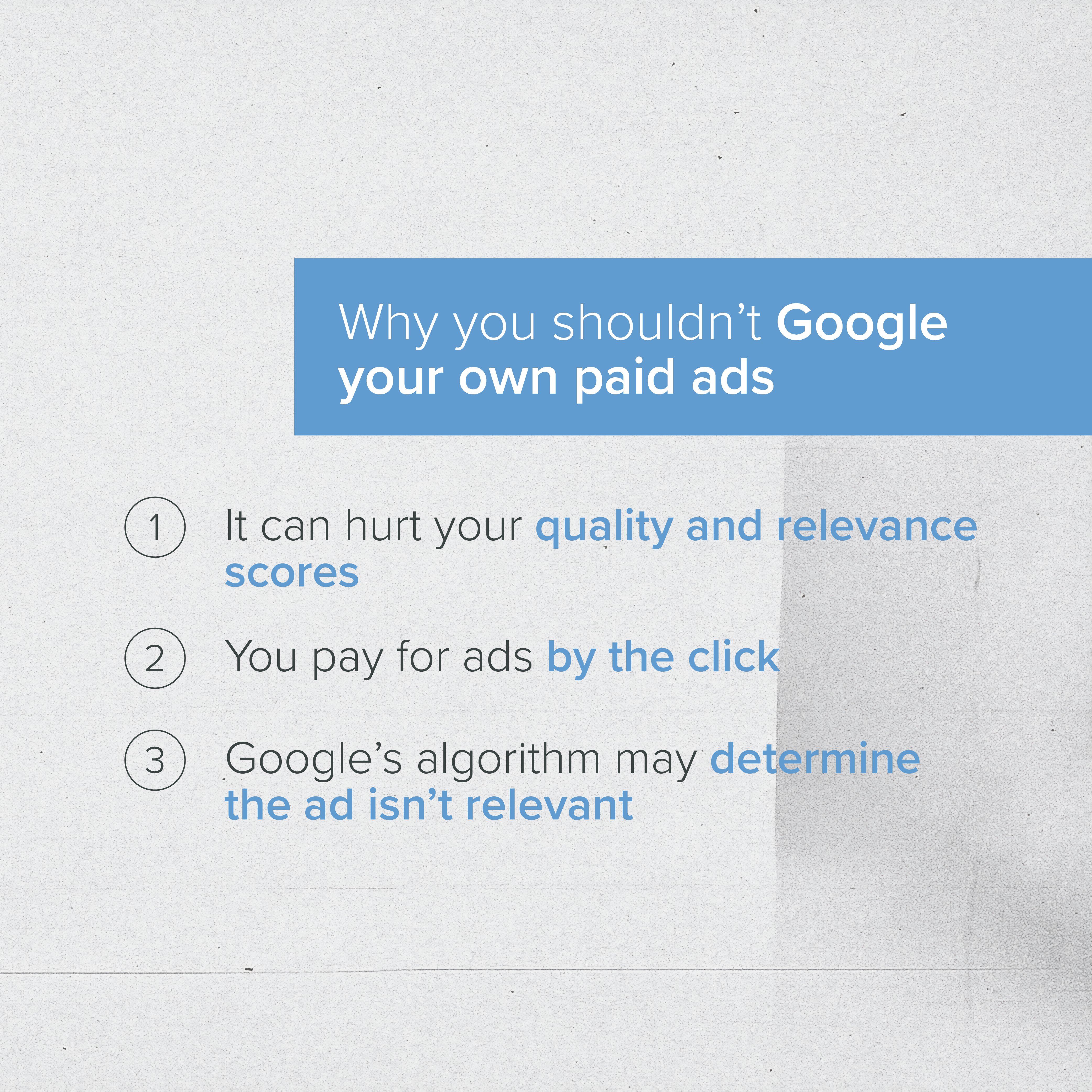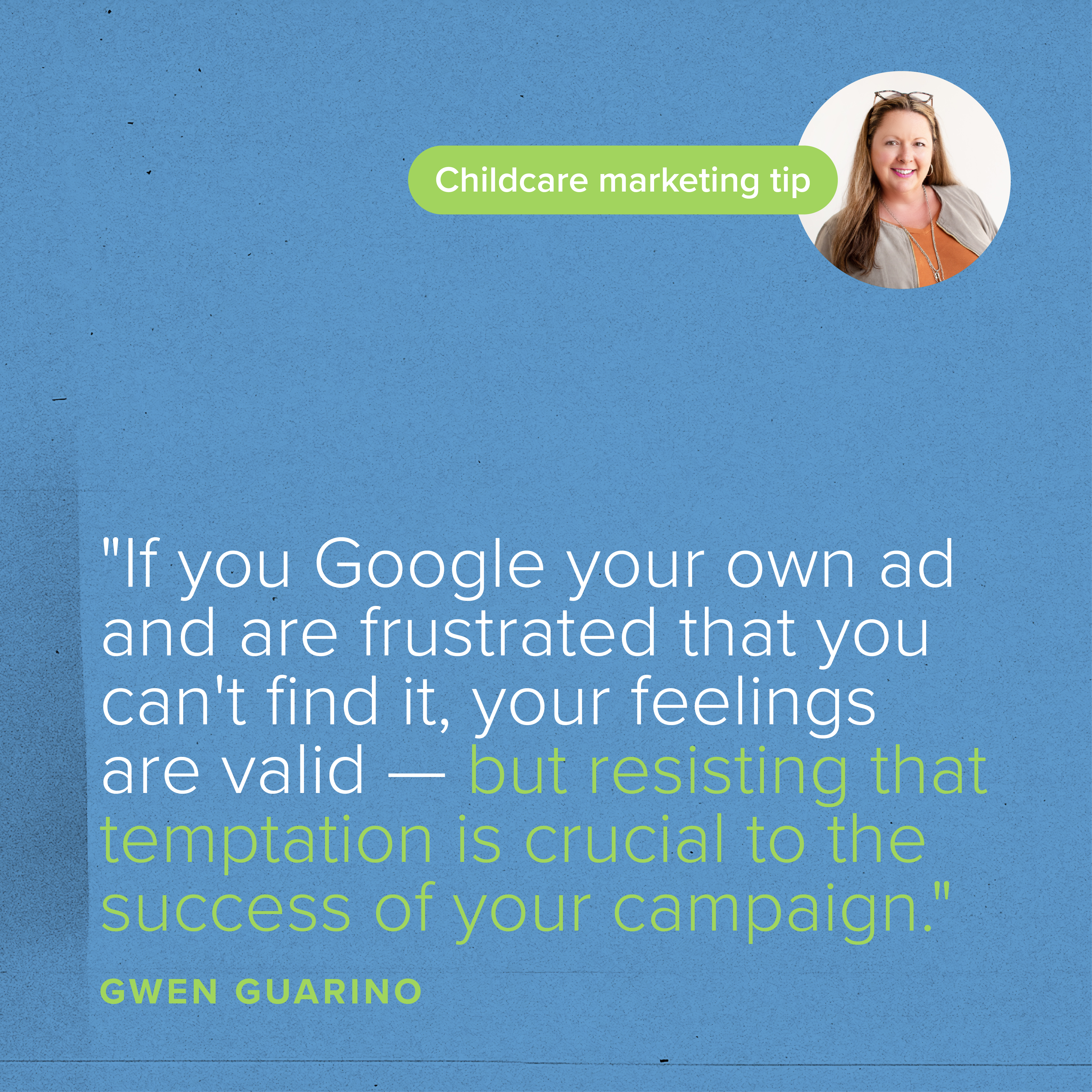If you don’t manage your own ads, you might be inclined to check up on them via search engine. What’s the ad copy like? How’d the landing page turn out? Where does your ad appear in the search engine results pages (SERPs)?
If you do manage your own ads, you may also be tempted to search for them. You want to ensure that you set them up correctly and that they’re appearing where you expected them to.
Whether you manage your own ads or work with an agency, you may be discouraged if you can’t find your ads in search. This can lead to mistrust between you and the agency managing your ads — or, if you’re managing your own ads, you might think you did something wrong during setup.
But this doesn’t mean your ad campaign is a failure.
The temptation to Google your paid ads is powerful. It’s also a huge mistake — but one we see all the time.

Why Googling Your Paid Ad Is a Mistake
These days, searches don’t necessarily display accurate results. There are many reasons for this.
Your Bidding Strategy
If your bidding strategy focuses on conversion, Google will target the users most likely to convert. If you search for and click on your ad but never convert, Google will stop showing you your ad because you aren’t part of the target demographic.
While this may cause you to panic and believe your ad isn’t working, it’s actually Google doing what’s best for your ad campaign — avoiding irrelevant clicks.
Quality and Relevance Score
Searching for your own ad can negatively impact your quality and relevance scores.
For example, if you click your ad to view its landing page but don’t engage with the landing page, Google may decide the landing page isn’t high quality or relevant enough. That could result in lower quality and relevance scores, which is a big deal.
The same is especially true if you use an incognito window. Searching this way can negatively affect your organic rankings.
CPC
Because you pay for ads by the click, you’re costing yourself money every time you click on your own ad. Consider how checking your ad every single day would affect your return on ad spend (ROAS).
Google’s Algorithm
Google uses your computer’s IP address to identify you as a unique user and show you ads based on your location and relevancy. For example, if you repeatedly search for your own ads without clicking on them, the algorithm determines the ads aren’t relevant to you and may stop showing them to you altogether.
It’s important to remember that this benefits you. The process weeds out users who may view but not click, or click but not convert. It makes your campaign more efficient, saving you money on irrelevant clicks.
All that said, we understand how frustrating it is when you can’t find your own ads. Thankfully, there’s a way to monitor them without damaging your campaign.
How to Safely Monitor Your Ads
Google’s Ad Preview Tool is the best way to view your ads. As ad managers, we use this tool on a regular basis.
If you’re working with an agency, you can ask them to help you log in to the tool or send you screenshots so you can see how an ad looks. That way, you can check the ad copy, placement, and competitor placements.
The tool works so well because it doesn’t actually serve you the ad. Instead, it simulates a real-time search in different formats without negatively affecting your campaign.
Wrapping Up
We often hear from frustrated clients after they Google their paid ad and find nothing. Sometimes, they go so far as to doubt we’re even serving the ad. They think if they can’t find it, no one can find it — which isn’t the case.
That’s not to say their frustration isn’t valid. They’ve poured money into ads and simply want to see the finished product in action. But resisting that temptation is crucial to the success of a campaign.
Keep your campaign healthy, save yourself frustration and money (CPC), and trust that we have your best interests at heart. Leave the searching and clicking to your customers.

Subscribe
Sign up with your email address to receive news and updates.

